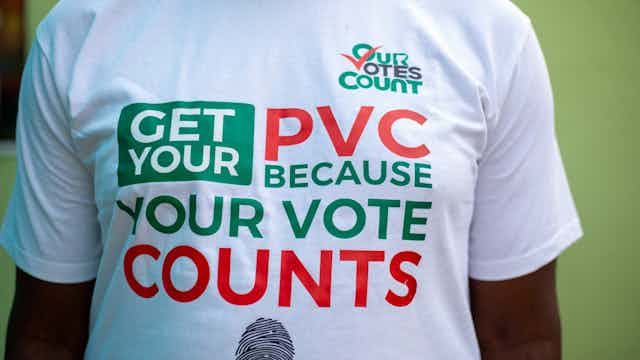Elections are a pillar of liberal democracy. Citizens use them to choose their leaders and influence governance.
In Nigeria, under the 1999 constitution, the Independent National Electoral Commission has the responsibility to organise, undertake and supervise all elections, except local government elections. Local government elections fall under state electoral commissions. Since it was set up in 1998, the Independent National Electoral Commission has conducted seven general elections (every four years) as well as by-elections and supplementary polls.
But Nigeria’s electoral body has an inconsistent record of performance over the years. The 2007 vote was widely seen as Nigeria’s worst, while 2011 showed some improvement despite irregularities. In 2023, some areas ran smoothly, but others, like Lagos and Rivers states, experienced violence, logistical failures and delays. Result collation took six days despite early funding and preparation.
In 2023, the electoral body announced presidential results without uploading most to its result viewing portal, IRev. This raised concerns about transparency and possible legal violations.
These problems are longstanding. Past elections have been marked by implausible turnout, result tampering and data discrepancies. A key enabler is a legal loophole: courts have ruled that the commission’s own guidelines aren’t binding.
As the tenure of the current chair comes to an end in October, the next chief must be carefully selected. The person plays a central role in determining the credibility, fairness and efficiency of Nigeria’s elections.
Electoral chiefs normally serve for a term of four years and can be reappointed for another four years. Only Mahmood Yakubu, the current chair, has enjoyed two terms.
The electoral chief operates amid complex political pressures. He or she is appointed by the president and confirmed by the Senate, a process critics say compromises independence. The chair also relies on the National Assembly for electoral reforms and budget approvals. The role demands constant engagement with political parties, civil society, international observers and security agencies.
On the basis of my research into election reform, I propose an agenda for the incoming electoral body chief. It includes:
transparent elections
credible voter registration
enforcement of electoral laws
monitoring of political parties
more use of technology in conducting elections
revamping civic education for voters.
Patchy record
The integrity of each election between 1999 and 2007 appeared to decline due to electoral fraud and administrative irregularities. The 2007 general elections were widely regarded as the most flawed in Nigeria’s democratic history. The winner, President Umaru Musa Yar’Adua, acknowledged the election’s shortcomings. These included:
late delivery of voting materials
delayed polling
ballot box stuffing
allocation of votes in areas where no voting occurred
falsified votes
withholding of election materials from opposition strongholds.
Yar’Adua set up the Electoral Reform Committee in 2009 in response to these irregularities.
This led to modest improvements. The turning point came with the 2011 general elections, conducted under Attahiru Jega. The elections restored public confidence, through commitment to transparency and professionalism. A constitutional amendment set the stage for reforms to election petition timelines and orderly scheduling of elections. Logistics, accreditation and security measures improved.
But the electoral body suffered from integrity deficiencies later. In 2025, the Senate terminated the appointments of three electoral commissioners over allegations of electoral misconduct, violations of the Electoral Act, and abandonment of duty.
Another milestone came with the Electoral Act 2022, which introduced some innovations for the 2023 general elections. Mahmood Yakubu presided over the 2019 and 2023 elections as the commission’s chair.
What needs fixing
Firstly, the new leadership must review election boundaries, in a transparent, data-driven and professional manner. It must distribute polling stations in a way that promotes fairness, accessibility and voter turnout. It should remove polling stations from conflict zones, partisan strongholds or inaccessible terrain.
Nigeria has not reviewed electoral boundaries or polling unit distribution since 1996, despite demographic changes. The current 119,973 polling units no longer reflect the country’s population growth and settlement patterns.
Regular delimitation is essential in a system of single-member constituencies. This is where voters directly elect one representative to a legislative body. The current imbalance contributes to voter apathy and unequal representation across constituencies.
Secondly, voter registration needs attention. The commission must conduct a full audit of the national voters’ register, to guarantee its accuracy and credibility. It’s more than a decade since the last proper review of the register. It may contain outdated entries, duplicates and ineligible voters.
Thirdly, electoral laws must be enforced and the electoral process cleaned up. A dedicated Electoral Offences Commission should investigate, prosecute and deter crimes like vote-buying, violence and ballot box snatching.
The commission should use surveillance technologies and coordinate closely with security agencies. Special electoral courts should resolve offences in good time. This would improve accountability.
Fourth, an independent agency should oversee political party registration, regulation and compliance. This body would enforce internal party democracy. It would also ensure transparent party primaries and monitor financial audits. This would make political parties accountable to established guidelines. The commission has acknowledged its limitations in managing these responsibilities.
Fifth, the incoming chair should promote technology use. Areas like voter accreditation, electronic voting, result transmission, and electoral data secure storage need enhanced technology. This can make results more transparent and reduce malpractice.
Sixth, Nigeria’s civic education strategy needs a revamp. Many citizens, especially in rural areas, don’t understand the electoral process and the importance of voting.
Social media campaigns should be combined with traditional media and grassroots outreach. Town halls, community events and partnerships with civil society organisations would inform voters and boost their participation.
The dangers of inaction
Progress has been made towards credible elections in Nigeria. The electoral commission’s next leadership must build on reforms and confront long-standing systemic weaknesses. Failure to act now will ultimately unravel the democratic system.
Emmanuel Remi Aiyede does not work for, consult, own shares in or receive funding from any company or organisation that would benefit from this article, and has disclosed no relevant affiliations beyond their academic appointment.
By Emmanuel Remi Aiyede, Professor of Political Institutions, Governance and Public Policy, University of Ibadan


